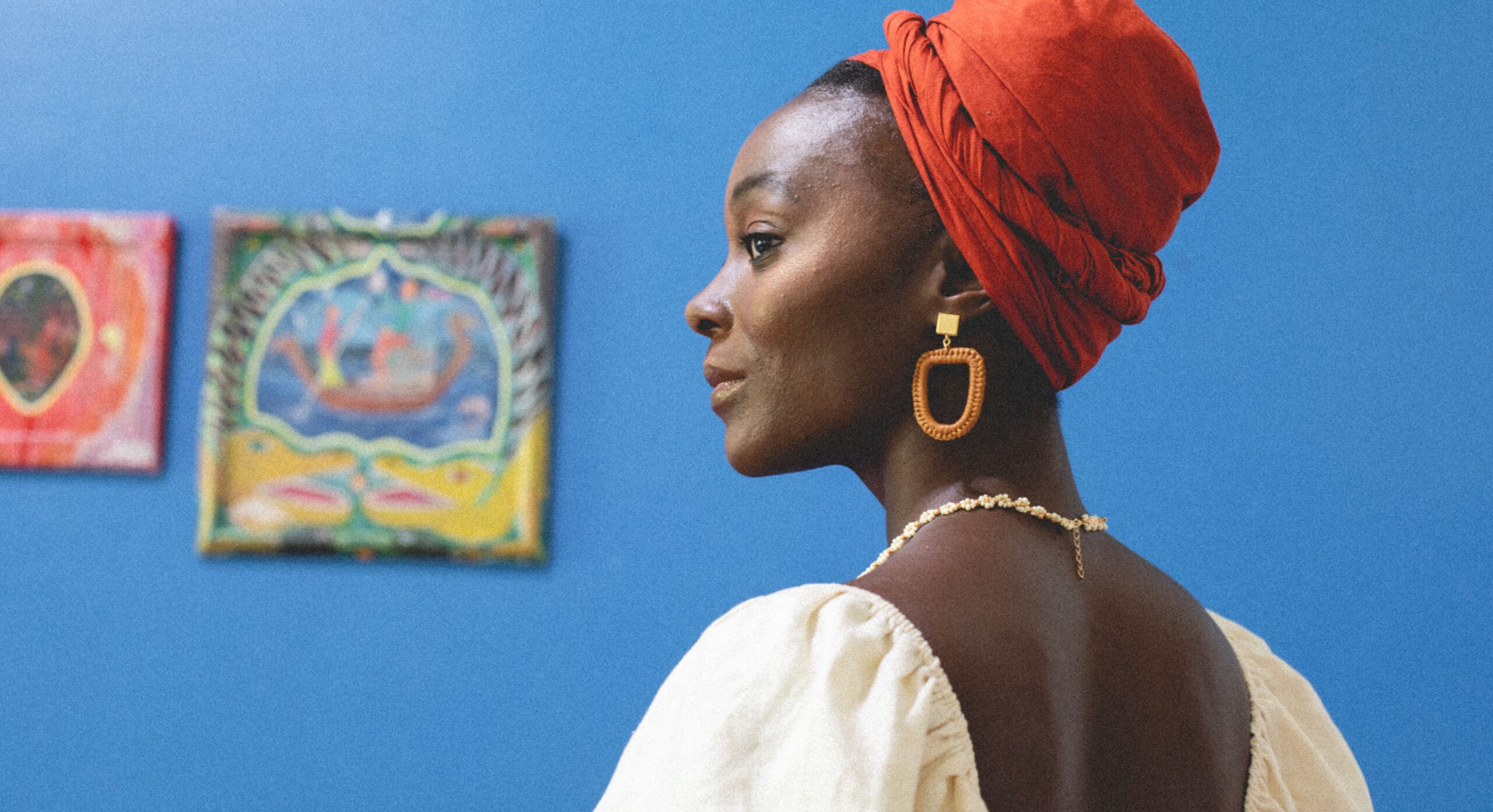2024 Festival composer, Natalie Joachim has released her second studio album, Ki moun ou ye. A Haitian American flutist, singer, and composer, Joachim’s original cello concerto will premiere at the Spoleto Festival USA Orchestra concert performed by cellist Seth Parker Woods. Get your tickets for the Orchestra’s June 1 performance and listen to her new album Ki moun ou ye, available now on streaming platforms.
Ki moun ou ye

Across the record’s ten intimate, original songs, Joachim ponders its title’s question: “Who are you?” Inspired by the remote Caribbean farmland that her family continues to call home after seven generations, Ki moun ou ye travels deeper into the Haitian heritage introduced on Joachim’s Grammy-nominated 2019 release, Fanm d’Ayiti.
Performed in English and Haitian Creole, the work examines the richness of the human voice—an instrument that encompasses DNA, ancestry, and identity—in a vibrant tapestry of Joachim’s voice with intricately layered vocal textures, underscored by Joachim’s flute playing, violin from Yvonne Lam (Eighth Blackbird), and drums by Jason Treuting (Sō Percussion). Ki moun ou ye explores Joachim’s personal history while highlighting her voice’s role as a tool for survival, healing, preservation of self, fellowship, and an affirmation of freedom.
Joachim says of the album and song title, “Creole as a language almost always has a primary, literal meaning of what’s being said plus a secondary layer of understanding, and sometimes even a tertiary level. ‘Ki moun ou ye’ can be very simply asking, ‘Who are you?’ But it also means, ‘Whose people are you?’ And it can also mean, ‘Which person are you?’” She continues, “For me, it led to, ‘Who am I actually?’ Not just on a performative level, but also as a Black person in spaces where I constantly have to code-switch. It’s a deep question. It isn’t casual.”
“I go back to Haiti very often and it was really important for me to record this music video on my family’s land because it is such a special place to me in terms of self-discovery,” Joachim says of the “Ki moun ou ye” music video. “It’s a piece of land that my family has tended to for seven generations and counting: Born and living on that land, being connected to that land, caring for one another, growing food, and fostering a sense of community there. It felt really gratifying to have an artistic project of mine be supported by the whole community. In that way, I feel deeply connected to these people, not just on a one-to-one personal level, but in some way on a kind of spiritual level, knowing that our families have all been connected for a long time.”
“My musical relationship with my grandmother precedes the rest of my musical training, and that was vocal-based,” Joachim continues. “Then when I was nine, I started playing the flute. I was very good at it right away and I started going to Juilliard’s prep programs when I was ten. The second that I got into that building, it became ultra-clear to me that I was going to have to live this compartmentalized musical life. What was valued there was very different from what was happening with my grandmother; none of those people knew that I even sang. It’s part of why this isn’t a flute record. When I asked myself, ‘Who am I?,” I wondered, ‘Is the flute actually who I am or is it just a thing I am good at?’”
About Nathalie Joachim
As a composer, Nathalie Joachim is regularly commissioned to write for orchestra, instrumental and vocal ensembles, dance, and interdisciplinary theater, often highlighting her unique electroacoustic style. Recent commissions include new works for St. Louis Symphony, Yale University’s Schwarzman Center, Sō Percussion, Roomful of Teeth, and Imani Winds; and forthcoming are new works for Carnegie Hall’s Ensemble Connect, Orpheus Chamber Orchestra and the Spoleto Festival USA. Joachim’s Fanm d’Ayiti, an evening-length work for flute, voice, string quartet, and electronics that celebrates and explores her personal Haitian heritage, received a Grammy nomination for Best World Music Album.
Joachim also is co-founder of the critically acclaimed duo Flutronix and has performed and recorded with an impressive range of today’s most exciting artists and ensembles, including Gabriel Kahane, Miguel Zenón, the International Contemporary Ensemble, and the contemporary chamber ensemble Eighth Blackbird with whom she performed as flutist for many years.
Joachim is a United States Artist Fellow and currently serves as an Artistic Partner with Oregon Symphony. She is an alumnus of The Juilliard School and The New School.

